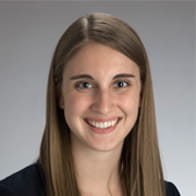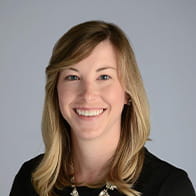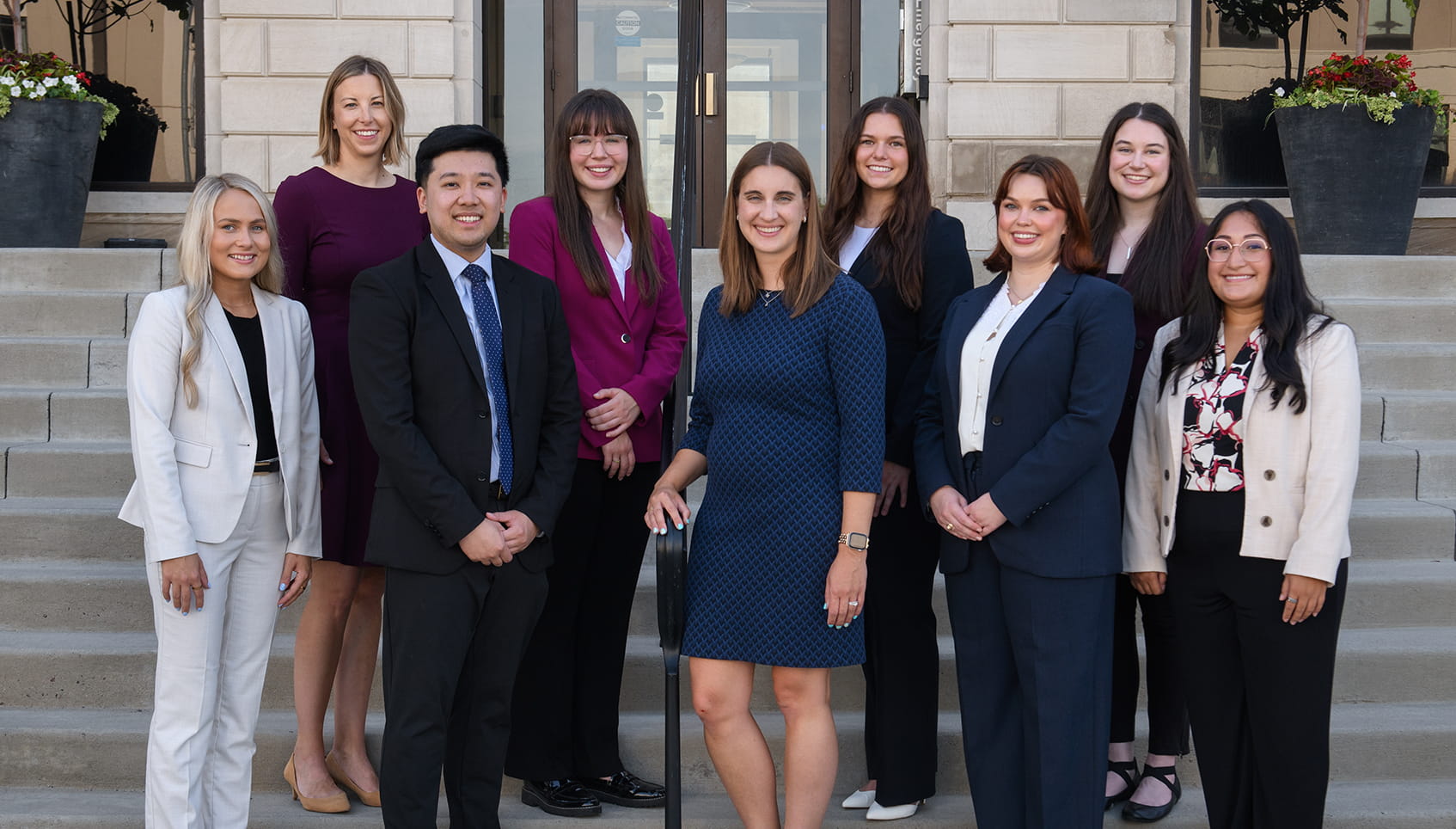- Home
- Professionals
- Residency Programs and Fellowships
- Pharmacy Residency
- Pharmacy Residency in Kansas City
- PGY1 Pharmacy Residency


The University of Kansas Health System offers a 13-month post-PharmD training program. The PGY1 pharmacy residency is an organized, directed, postgraduate training program that centers on development of the knowledge, attitudes and skills needed to pursue rational drug therapy.
PGY1 residency programs build upon a Doctor of Pharmacy (PharmD) education and outcomes to develop pharmacist practitioners with knowledge, skills and abilities as defined in the educational competency areas, goals and objectives. Residents who successfully complete PGY1 residency programs will be skilled in diverse patient care, practice management, leadership and education and be prepared to provide patient care, seek board certification in pharmacotherapy (i.e., BCPS), and pursue advanced education and training opportunities including postgraduate year 2 (PGY2) residencies.
Length of program: 13 months (approximately June-July)
Number of positions: 6
The following learning experiences are considered elective options, but some may be required or specific to a particular PGY1 track. Additionally, learning experiences included above in required selective learning experiences may be selected as elective options.
PGY1 residents have the option to participate in the University of Kansas School of Pharmacy Resident Teaching Certificate.
PhORCAS residency program application
National matching services (NMS) code: 143313
We are an equal employment opportunity employer without regard to a person’s race, color, religion, sex (including pregnancy, gender identity and sexual orientation), national origin, ancestry, age (40 or older), disability, veteran status or genetic information.

Sarah Mester, PharmD, MS, BCPS (she/her/hers)

Lindsey Fitzpatrick, PharmD, BCPS (she/her/hers)

Hometown: Houston, Texas
Pharmacy school: The University of Texas at Austin College of Pharmacy
Clinical staffing area: Pediatrics
Research project title: Effect of Obesity on Incidence and Severity of Neurotoxicity in Patients Receiving Arsenic Trioxide for Acute Promyelocytic Leukemia
Areas of interest: Oncology and women's health
Why I chose The University of Kansas Health System: Having lived in Texas most of my life, I was excited for the chance to explore a new city and care for a different patient population. I was drawn to this program because it's a large academic medical center with great opportunities to teach and precept. I also loved that we have the opportunity to staff in a clinical area. What stood out to me the most was how welcoming and supportive everyone was. From the residents I met at midyear to the faculty during interviews, it was clear that this is a place where people are passionate about their work and truly invested in helping each resident grow.
Hometown: Kingman, Kansas
Pharmacy school: University of Kansas School of Pharmacy
Clinical staffing area: Cardiology
Research project title: Comparing the Clinical Efficacy of Higher Versus Lower Valproic Acid Maintenance Dosing in Status Epilepticus
Areas of interest: Critical Care
Why I chose The University of Kansas Health System: I always knew I wanted to pursue residency at an academic medical center. The health system stuck out to me for multiple reasons. As a student, I had multiple opportunities to see first-hand how valued the residents are and how their opinion and presence is an integral part of the multidisciplinary rounding teams. The health system also has a vastly diverse patient population, spanning all levels of acuity. I knew that by completing my training here and taking care of all types of patients in any area, I would be provided the strong foundation to move on to a PGY2 in my area of interest. The health system’s pharmacy is one of the best pharmacy "phamilies" I've ever encountered! The care throughout the health system makes coming to work every day easy.
Hometown: Wichita, Kansas
Pharmacy school: University of Kansas
Clinical staffing area: Pediatrics
Research project title: Evaluating Incidence of Immune Effector Cell-Associated HLH (IEC-HLH) Across CAR T and BiTE Therapies and Treatment Outcomes with Anakinra, Ruxolitinib and Emapalumab
Areas of interest: Oncology, solid organ transplant
Why I chose The University of Kansas Health System: Having the opportunity to rotate through the health system as a student, I was able to see and learn so much from my preceptors in highly specialized areas and always felt like I was part of the team. Coming into residency, I knew I wanted to continue being challenged clinically and personally in an environment that felt safe and encouraging for learners, and being an academic medical center, the health system felt like the perfect place for me. The learning experiences and opportunities in the health system are endless, which gives me the chance to broaden my clinical knowledge in a way that is unrivaled by many programs.
Hometown: Norton, Kansas
Pharmacy school: University of Kansas School of Pharmacy
Clinical staffing area: Internal medicine
Research project title: Efficacy and Safety of Low-Dose Anti-Thymocyte Globulin Compared to Moderate-Dose Anti-Thymocyte Globulin for Induction Therapy in Kidney Transplantation
Areas of interest: Transplant, infectious diseases
Why I chose The University of Kansas Health System: I chose the health system because I was looking for a program that offered a wide variety of rotations with clinically complex patients that matched my interests. I wanted to complete a residency at a large academic medical center where I would be challenged but also supported by preceptors who are invested in teaching. What stood out to me was the strong learning environment, the ability to work on meaningful research and how valued pharmacists are on the care team. This program felt like the right place to grow both professionally and personally during my residency year.
Hometown: Shawnee, Kansas
Pharmacy school: University of Kansas School of Pharmacy
Clinical staffing area: Cardiology
Research project title: Evaluation of the Safety and Efficacy of Antimotility Agents in Patients with Clostridium Difficile Infection
Areas of interest: Cardiology, critical care, internal medicine
Why I chose The University of Kansas Health System: As a student, I had the opportunity to complete APPE rotations through The University of Kansas Health System. I was able to collaborate with knowledgeable preceptors and be a part of multidisciplinary teams that were supportive and encouraging toward learners. While I was searching for residency programs, I constantly found myself comparing each program to my experiences at this health system. Being a large academic medical center, there are ample amounts of learning opportunities available to residents. I felt like this program would be the best fit for my interests and would help shape me into a well-rounded pharmacist through its challenging learning experiences and meaningful projects.
Hometown: Omaha, Nebraska
Pharmacy school: South Dakota State University
Clinical staffing area: Internal medicine
Research project title: Comparison of Clinical Outcomes Between Oral Fluoroquinolones and Trimethoprim-Sulfamethoxazole Versus Oral Beta Lactams for Uncomplicated Enterobacterales Bloodstream Infections
Areas of interest: Infectious diseases
Why I chose The University of Kansas Health System: I chose the health system because I wanted an environment that would both support and challenge me to grow beyond my comfort zone. I was drawn to the large academic medical center setting, which would allow me to gain experience in managing patients with a wide range of disease states. It was evident that this institution would provide the opportunities I was seeking to develop as a pharmacist, with dedicated preceptors and mentors to guide me every step of the way!